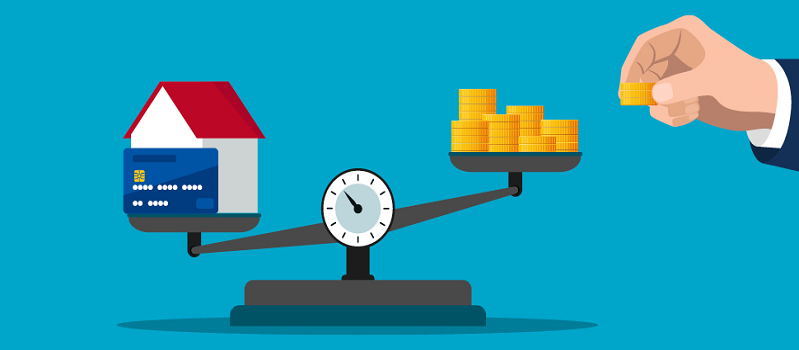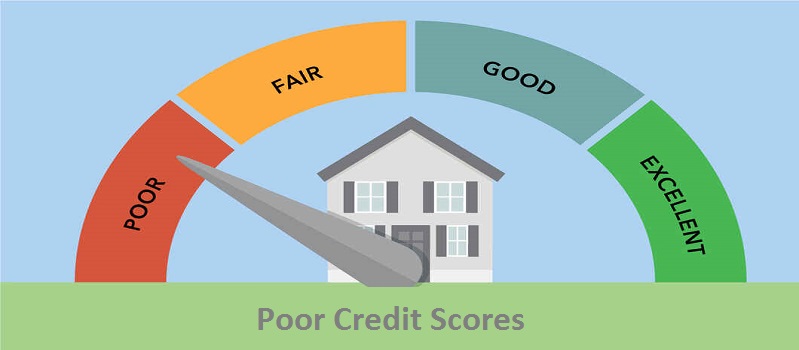Your debt-to-income ratio determines nearly every aspect of your financial life. From approaching the credit card providers to lenders, the Debt-to-income ratio plays a crucial role. It helps the provider determine the interest and the limit they should approve you of.
The better the Debt-to-income ratio, the better rates you get on different financial equipment.
Thus, keeping your debt-to-income ratio in good form is important. The blog lists some ways to improve it and maintain the ratio.
What does debt-to-income imply?
Debt-to-income ratio is the ratio of your total monthly debt to your total income. It helps the loan providers and financial experts calculate the affordability of a loan and other requirements. If the maximum part of your income goes towards debt payments, you may have a low debt-to-income ratio.
A low debt-to-ratio is ideal. It implies that a borrower is reliable in financial and debt management and can pay the debt with little trouble. Alternatively, individuals with high DTI struggle to get favourable terms.
The ideal Debt-to-income ratio is 36%. It implies that the maximum part of your income should go towards savings and limited towards debt. There are two types of Debt-to-income ratios that lenders may consider. These are:
a) Front-end debt-to-income ratio
It covers expenses like rent,household payments,property taxes, mortgage payments and homeowner’s insurance.
b) Back-end debt-to-income ratio
To have a comprehensive view of your finances, lenders require back end debt-to-income ratio. They determine so by analysing aspects like student loans, child maintenance and credit card payments. It also reveals the other benefits and grants that you leverage.
5 Ways to decrease your debt-to-income ratio
Now, let’s analyse the primary part of the blog.
There are multiple ways to improve or reduce your debt-to-income ratio. If you want, you can do so by undertaking the following strategies:
1) Increase your salary
Income is one factor that contributes 50% to your Debt-to-income ratio. Individuals with low income generally have poor DTI. Thus, explore ways to increase your income. Check whether you can get a part-time income or seek a hike in the existing salary.
This is because the higher the income, the better the DTI. Thus, check whether you can re-start your freelancing journey for a while or get new contracts. It would help your debt-to-income ratio.
2) Pay the existing debts
The next part is – identifying the debts and restricting the payments to achieve a stable financial report. You can do so by identifying high-interest debts like credit cards, student loans, payday debts, etc., and sorting the best way to pay the debt. You can either pay the debts individually or consolidate the debts. If the latter option seems better, facilities like very bad credit loans with no guarantor from a direct lender may assist you.
First, you can get it despite your poor credit history. Secondly, it does not require any guarantee like the guarantor to confirm the loan. It is the reason most individuals prefer these loans to meet an immediate or finance credit-related requirement without difficulties.
By paying down the debts, you will see your credit improve drastically. It is the best way to revise your DTI.
3) Avoid borrowing unnecessarily
It is the most important part of the credit management and DTI. Little neglect on this part may impact every effort to reduce the ratio. Thus, analyse the budget and undertake the right measures to meet your needs. Though short-term loans are the best and easiest way to counter emergencies, you must not tap them until necessary. It would only lead to additional liability or burden.
To avoid the additional expense, analyse the best ways to budget. Keep some part separate out of your income towards the debt clearance and management. It would help you reduce the borrowing habit and instead rely on your finances and savings to meet small requirements.
4) Reduce unnecessary spending/expenses
Reducing the Debt-to-income ratio requires you to lower your expenses drastically. If you aim to achieve a target, do not spend extra on things you buy on impulse. Yes, you may not believe this, but one often purchases items based on impulse.
Moreover, you often do not need that thing but buy it anyway just for the sake of it. For example, – if you catch a discount on anything, you buy that immediately. Why? Simply because the mind attracts cheaply-priced things quickly. If you are habitual to buying or spending more than your budget allows, then the below tips may help you:
- List the items you need for the week
- Take the cash you need to buy the items
- Avoid taking cards or net banking to pay the bill
- Shop with a goal
- Put savings in a separate account and withdraw only the amount you need
- Try a shopping ban for a month
- Avoid taking up unnecessary coupons
5) Pay a large deposit on car finance or mortgage
If you want to improve your DTI, paying an extra lump sum on the loan may help you. Deposit helps reduce the overall due on the loan. Moreover, it reduces the final interest costs that you qualify for.
Wouldn’t it be best to get low repayments monthly? By paying extra or a deposit over your next life goal like buying a car or a home, you can improve your Debt-to-income ratio.
You can budget for the deposit before applying for the loan. For example, analyse the car finance quotes and the expected deposit you may require. Save a particular amount every month to reach your deposit goals.
If you struggle to save for the last deposit amount but do not want to miss the quote, get unsecured bad credit loans from direct lenders near you. Unsecured loans may help you finance the remaining amount required to pay the deposit. In this way, you never miss your goals and achieve the best quote just in time.
Bottom line
Debt-to-income ratio is thus an important parameter in developing your credit score. It helps you re-analyse your finances and improve them bit by bit. If confused, the above tips may help you begin with DTI improvement. These tips may help even a fresher or first-time credit holder improve credit and qualify for better interest rates and terms.
Precisely, by improving Debt to income ratio, you prove to lenders that you can manage the debt well and afford additional debts later.

Emma Anderson is a financial advisor at Quickloanslender who always believes in researching hard to know her clients’ financial problems. She takes the time to understand their financial wants and needs to write the blogs on them as the solutions. In her long 14 years of experience, she has written plenty of blogs on the financial and business sectors of the UK.
Emma Anderson has been recognised for her work in financial planning and her blogs are regularly published in the website of Quickloanslender. As far as her educational qualification is concerned, she has done Masters in Accounting and Finance, and done PG Diploma in Creative Writing.






